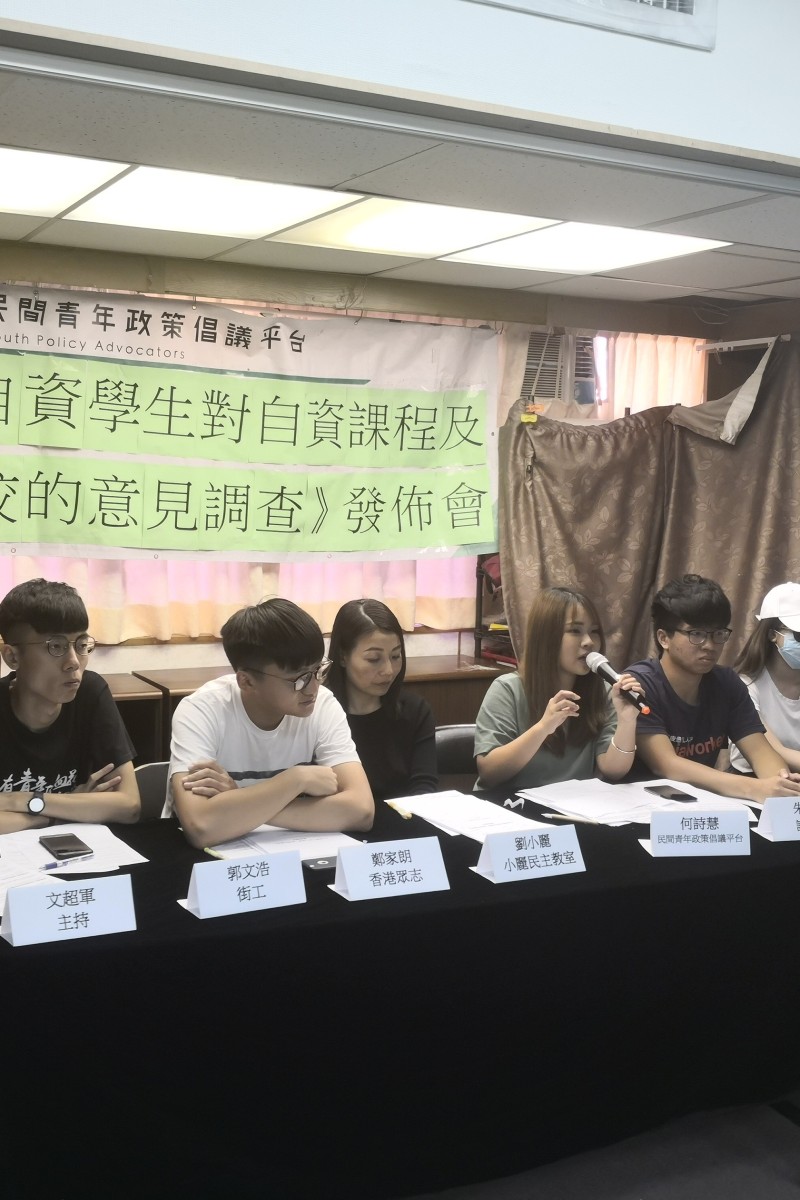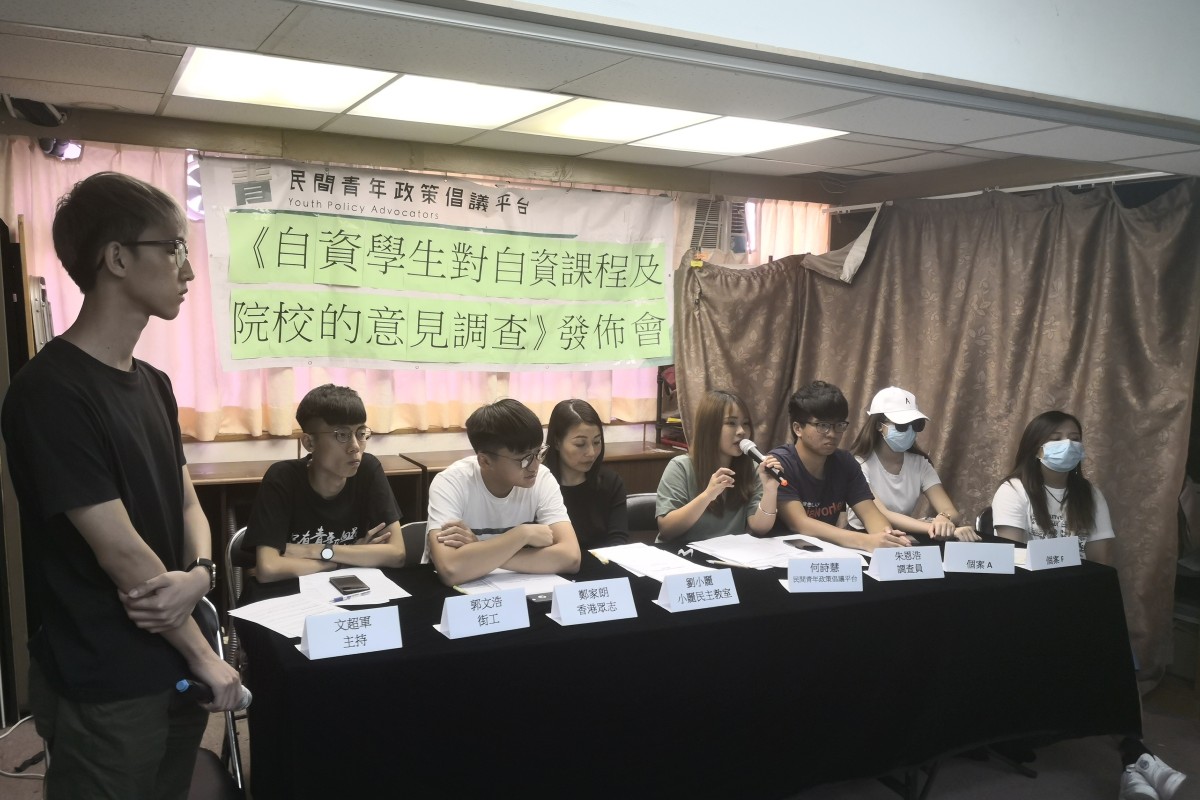
Self-funded degrees aren’t worth your time and money, Hong Kong students say
A survey of students taking self-financing degrees found that many felt they weren’t getting what they paid for
 Concern group Youth Policy Advocators spoke to 350 self-funded students in the city.
Concern group Youth Policy Advocators spoke to 350 self-funded students in the city. Many students taking self-financing higher education courses face high tuition fees and poor quality education, a survey by concern group Youth Policy Advocators has found.
The survey, carried out in July, collected the views of 350 students currently studying self-financing programmes. It comes as a special government task force is coming up with proposals to reform the sector.
Hong Kong students call for more publicly funded university places
Self-financing programmes, which can cost hundreds of thousands of dollars each year, are seen as an alternative for students who are unable to get a subsidised place at a University Grants Committee (UGC) institution. Around 70 per cent of those surveyed said the government’s HK$30,000 annual subsidy for self-financing students was not enough.
Speaking at a press conference, one student – who did not wish to be named and who studied at a self-financing institution – said her associate degree was a waste of time and money.
How much does a college matter in getting a student to graduate?
“Many institutions advertised that 60 to 80 per cent of [their] students could be promoted to a degree programme ... but I found that unless your grade point average (GPA) was at least 3.6 then you couldn’t even think about studying at a university,” she said. “Some of the exams were open book, and you just needed to copy the words from the teacher’s notes into the exam paper. In class, the teachers just read off their PowerPoint [presentations].”
More than 90 per cent of those surveyed believed the government needed to do more to regulate and monitor self-financing institutions. Around 75 per cent also thought the government needed to increase the number of subsided places run by the UGC.